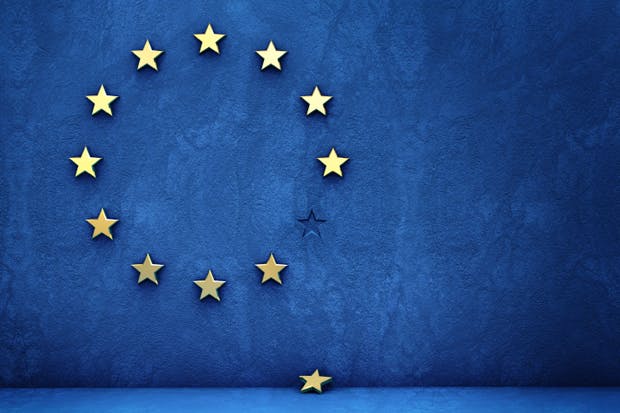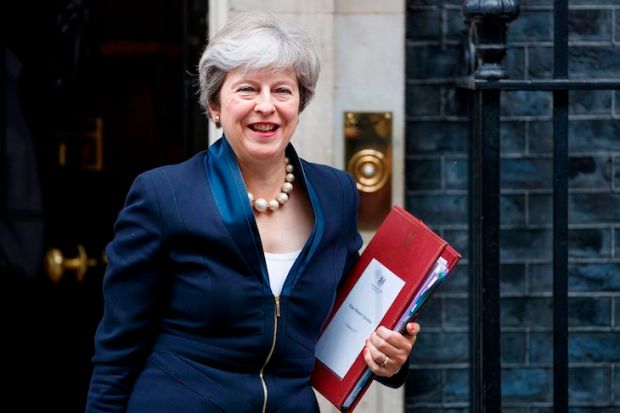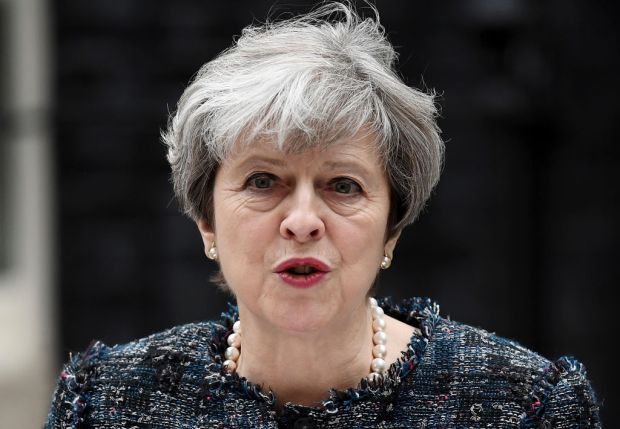By this time next year Britain will, if the government has its way, have voted on whether or not this country should stay in the European Union. This referendum has the potential to reshape British politics. It will not only determine whether we remain in the EU, but it will also play a huge role in determining who will be the next Prime Minister. It will present David Cameron with the most difficult party-management challenge that he has faced in more than a decade as Tory leader.
Downing Street has given up trying to secure a deal at the European Council later this month. The new target is early in the new year. The major stumbling block to any agreement is the British proposal for a four-year bar on EU migrants receiving either in- or out-of-work benefits here.
Cameron has been told that this is vital if he is to persuade Britain that he is doing something about immigration, one of voters’ biggest concerns about EU membership. However, Eastern European govern-ments — particularly the newly elected Polish one — are determined not to concede this point. With Angela Merkel having burned her political capital with these countries over refugee resettlement, it is hard to see who can — or will — persuade them to accept the British position.
Both campaigns believe that the end of the renegotiation will benefit them. The ‘Out’ side claims that focus groups find voters incredulous when told that Cameron won’t use the renegotiation to challenge the principle of free movement. They believe they will be able to persuade the public that the new deal is pretty much the same as the current one — and it is true that the demands Cameron set out in his recent letter to European Council president Donald Tusk were underwhelming. Even cabinet ministers who will campaign with Cameron admit that the Prime Minister’s demands are too modest. The ‘Out’ campaign will duly say that ‘Cameron promised real change, but he’s only delivered small change.’
At the moment, their rivals are not making the weather. Many of the politicians prepared to support ‘In’ before the renegotiation also backed joining the euro, which rather reduces their standing in this debate. The ‘In’ campaign is acutely aware of what a problem this is. It’s interesting that Peter Mandelson and Danny Alexander, two leading lights of the campaign to persuade Britain to join the single currency, stayed away from the ‘In’ launch.
In an attempt to address this weakness, the campaign has recruited Stuart Rose, the former M&S boss and one of No. 10’s favourite businessmen, as its frontman. But, as with so many businessmen, Rose isn’t very good at politics. A few days after the launch, he declared that ‘Nothing is going to happen if we come out of Europe in the first five years, probably. There will be absolutely no change.’
This was a serious blunder — and Rose has not done a major interview since — because one of the campaign’s strongest arguments is that the ‘Out’ camp can’t explain what Britain’s relationship with the EU would be if we voted to leave. Indeed, given the divide in the eurosceptic movement about this question, the ‘Out’ side has decided that it simply won’t try to answer it. The danger is that this becomes an Achilles heel, akin to Alex Salmond’s inability to explain how he would persuade the rest of the UK to share the pound with an independent Scotland.
Those close to Cameron believe that another great weakness of the ‘Out’ campaign is its leadership. As one puts it: ‘The Prime Minister, the governor of the Bank of England, the president of the US and the president of China all saying ‘Stay in’ is going to persuade a lot of people’. By contrast, the ‘Out’ side’s most senior figure is Nigel Lawson, who left the Commons 23 years ago. ‘Out’ do have a party leader on their side — Nigel Farage — but even the alternative ‘Out’ campaign run by Ukip donor Aaron Banks accepts that Farage is too divisive a figure to be the face of the campaign.
This is why what Boris Johnson and cabinet ministers do, come the referendum, matters so much. The boost for ‘In’ from Cameron’s support is greatly reduced if he can’t bring his top team with him.
If a sizeable number of Tory big beasts lent their support to ‘Out’, they would give that campaign more credibility. This is what makes the rapprochement between George Osborne, who is almost certain to back staying In, and Theresa May, the one holder of a great office of state who might back ‘Out’, so significant. Straight after the spending review, which protected police budgets, one of those who knows Osborne best declared, that it marked a ‘new partnership’ between them. A close Osborne ally now says: ‘Maybe Theresa will be George’s Chancellor.’
The other crucial question is when the referendum will be. The government would prefer sooner rather than later — ideally in June before ‘migrant season’ gets into full flow. But there are significant logistical obstacles to this. First, the Electoral Commis-sion would be deeply unhappy with the referendum cutting across the Scottish, Welsh and London elections that take place in May — though these objections would have no legal force. The second is the question of 16- and 17-year-olds voting in the referendum. The House of Lords has voted for this, but the government is committed to overturning it in the Commons. But if the Lords won’t back down, then the government will have to delay the referendum for another year. The ‘In’ campaign, though, is keen to avoid the referendum going into 2017 for fear that the longer it goes on, the more likely it is that events will favour ‘Out’.
Cameron and the ‘In’ campaign’s argument will be that Britain can have the best of both worlds — in the European Union and the single market but not in the single currency or Schengen. But the limited nature of the renegotiation, with no challenge to the principle of freedom of movement, means that Britain will never find out how good the best of both worlds could have been. Instead, voters will have to choose between two deeply imperfect options.
Got something to add? Join the discussion and comment below.
Get 10 issues for just $10
Subscribe to The Spectator Australia today for the next 10 magazine issues, plus full online access, for just $10.















Comments
Don't miss out
Join the conversation with other Spectator Australia readers. Subscribe to leave a comment.
SUBSCRIBEAlready a subscriber? Log in